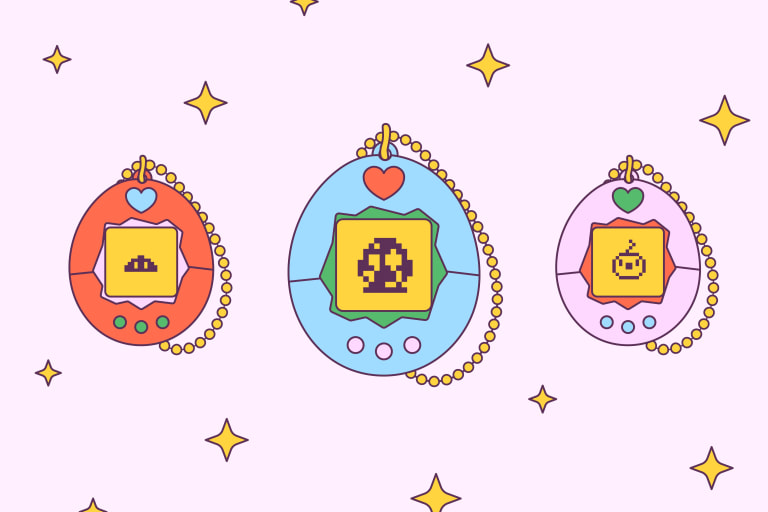
Your 52-Week-Old Baby (One Year Old)
Congratulations! That’s a wrap on year one!

In This Article
Milestone: Happy First Birthday!
It was a year of snuggles, sleepless nights, diaper blowouts and firsts of all kinds.
Moments of sheer joy and utter exhaustion. New stages to navigate and childproofing to tackle. Rolling and crawling, standing and cruising. The best belly laughs ever, bright smiles and mischievous eye twinkles.
One year into this whole parenting thing means you’re a pro at packing a diaper bag, a master at doing everything one-handed and an expert at cutting grapes into 1/8ths. You’re a delightful guest at pretend tea parties, a top-notch train conductor, music maker and book reader. Your moos and oinks are on par with real farm animals.
Even when things felt tough or overwhelming, you did it! (Yes...even the complicated swaddle and cluster feedings.)
So aside from saying happy birthday to your baby, we’d also like to congratulate you for rocking year one of parenthood. We hope you're loving the journey.
The 1-Year Checkup
What’s up, doc?
If you haven’t already scheduled your kiddo’s first year checkup, book an appointment for shortly after their birthday. At this visit, the pediatrician will do a physical exam and check your baby’s weight, height and head circumference to keep tabs on their growth. According the CDC’s immunization schedule, your baby will have several vaccines to protect against measles, mumps, rubella, chickenpox and pneumococcus. And if it’s fall or winter, a flu shot will be recommended too.
As year one comes to a close, your doctor will want to know how mobile your baby is (if they’re standing, pulling up, cruising or walking), if they’re saying any words and how they’re using their hands to point, gesture and play.
You’ll probably have plenty of questions as well. Is it time to switch to whole milk? Wean from the breast or bottle? Introduce new foods? Change the sleep schedule? Don’t be shy about asking the doc whatever is on your mind!
Thinking About Having Another Baby?
Wait, what? Is it really time to think about doing this all over again? Maybe! Your timetable for having another baby is a very personal decision, with lots of factors at play.
If you were pregnant with this kiddo, first and foremost, take your health into consideration. You’ll want to be physically ready for another pregnancy, which is a lot more exhausting when you’re chasing around another kid! Make sure you’ve been eating well, are back to a healthy weight and taking your prenatal vitamins. Prenatals give you all sort of nutrients including calcium, iron and folic acid. Folic acid is particularly important in helping to prevent neural tube birth defects. If you have any other health issues that could play a role in conceiving or having a healthy pregnancy, talk to your doctor before making any big decisions.
When it comes to family planning, parents usually have an idea of how close in age they want their kiddos to be. However, doctors advise women to wait at least 18 months after giving birth before conceiving again (this birth spacing recommendation is based on public health guidelines and research). Too little time between pregnancies increases the risk for certain health problems, including premature birth and low birthweight. Waiting a year and a half also gives your body time to recover from your last pregnancy.
However, if you’re 35 or older, the idea of waiting 18 months to try again may not be ideal (as women age, the quality and quantity of their eggs decreases so it can take longer to get pregnant). In this case, work with your doctor to assess the risks and determine the right plan for you.
Another thing you can do to prepare for getting pregnant again is to track your period, especially if it isn’t back to its usual rhythm. Get an ovulation kit at the drugstore to determine when you’re ovulating and most likely to conceive. These kits are easy to use (just pee on a stick and it’ll test the hormone levels in your urine and show if it’s a fertile window or not). There are also apps you can use to track and predict fertile days.
Take your finances into consideration too. Start budgeting for another child and all of the things that come along with them (more diapers, new gear and changes to your childcare plan, just to name a few!)
If you went through IVF or adopted your baby, there are many other emotional and financial factors to consider when thinking about growing your family. You'll need to decide if you and your family are physically and emotionally ready for them.
Whatever you decide, thank you for bringing us along on your parenting journey. And if you decide to expand your family, we hope to see you back here!
